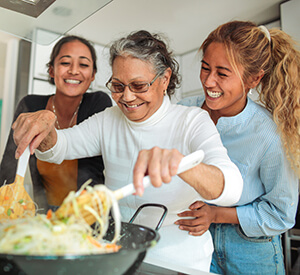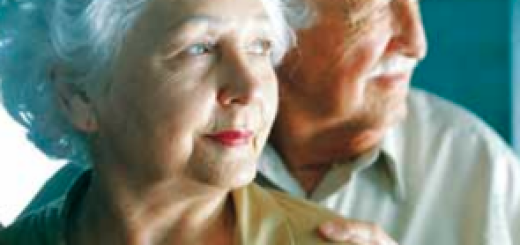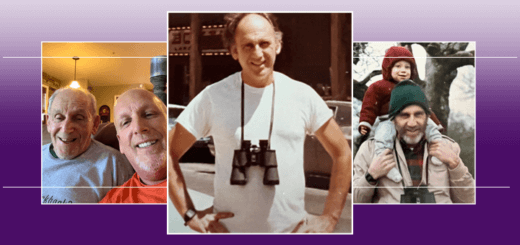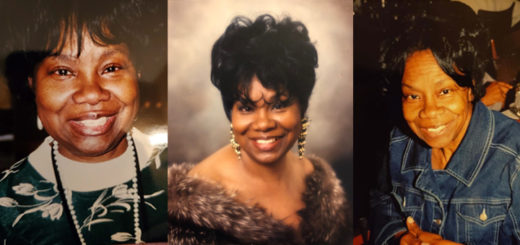Alzheimer’s Association grant recipient creates new testing for Tagalog speakers
The Alzheimer’s Association® awards grants to researchers who are working on projects that will help advance treatment, improve care and further our knowledge about Alzheimer’s and other dementias. We are lucky to have so many leading researchers located within our chapter boundaries. One such grant recipient, Dr. Jessica de Leon, is working to create cognitive testing to better identify Tagalog speakers who are experiencing cognitive difficulties.
A background in science and language
Dr. Jessica de Leon received her undergraduate degrees in neuroscience and Spanish at the Johns Hopkins University and an MD with thesis degree at UCSF. Currently she works as an assistant professor at the UCSF Memory and Aging Center, where she focuses on the care of patients with cognitive decline, including dementia.
“I majored in neuroscience and majored in Spanish,” said Jessica. “In a way, that’s where my interest in languages and the brain started. It has led to what my career path has been.”
A need for better testing
As a Filipina herself, Jessica knew that there is a large Filipino population located in the Bay Area. According to the 2017 American Community Survey, nearly 500,000 Filipinos live in the Bay Area, which makes up 12% of Filipinos living in the United States.
Jessica noticed that people whose first language was Tagalog had a hard time answering questions on cognitive assessments. This wasn’t necessarily because of problems with their memory, but because of issues with translation or interpretation of the questions.
“We often don’t have the right measures in the clinic to evaluate people,” said Jessica. “We’ll use measures that are translated from English, on the fly. Even when Filipinos do speak English, a lot of the time we’re not sure how to interpret how they do on these tests.
Testing challenges
There are several issues with simply translating the tests from English into Tagalog. Here are three of the main challenges:
The unknown
In the English version of a memory test, there is a question about beavers, a commonly known animal in the United States. However, beavers do not live in the Philippines, and there isn’t a word for “Beaver” in Tagolog.
When Filipinos are asked about beavers in a cognitive assessment, It is hard to know if they have trouble naming the picture because they never learned the word or because they have cognitive impairment.
Grammar
Another complication with translation is the use of grammar. Many words, when translated, no longer have the same meaning.
Taglish
Finally, depending on how long a Tagalog speaker has been exposed to English, it changes how much of each language they prefer to use. Many Filipinos in the United States speak a combination of English and Tagalog, something Jessica refers to as “Taglish.” “We need to figure out what are acceptable answers,” said Jessica. “Is it a more familiar word in English or will they want to use Tagalog? We will need to normalize that on tests.”
Developing new tests
Jessica’s Alzheimer’s Association grant will allow her to enhance existing tests and develop several new tools to test the memory, spatial function, language skills and executive function of Filipinos. The project goal is to find a test that can be standardized and help Filipinos receive an accurate diagnosis when it comes to memory loss.
“Some [tests] are verbal and some are drawing pen/pencil tests,” said Jessica. “We’ll have some memory tests where they have to draw a figure from memory or remember a list of words in Tagalog and then repeat them again 10 minutes later.”
Testing the test
In the first stage, Jessica and her team are looking for people who want to test the test. “We’re not looking to diagnosis people at this stage,” said Jessica. “We’re going to start with 30 people who are functioning okay, between [the ages of] 45 and 80. They can speak however much English and Tagalog they speak.”
Once Jessica and her team fine tune things, they will begin looking for people who have some form of cognitive impairment and test the tests with them. Jessica said, “I think initially the goal will be, are these tests even feasible? Can people get through them and not get too frustrated? We want to capture what ‘normal’ looks like.”
Translating other resources
An unofficial part of the grant that has come to Jessica’s attention, is a need for resources in Tagalog that translate into something culturally relevant. “For example, the typical food pictures for a Mediterranean diet [known for brain health] often include items that Filipinos don’t usually eat,” said Jessica.
“How do you translate that into something culturally relevant? [We want to develop] ways to build trust through education. We’re doing this in an area where we need to go against the stigma [about the disease] that is there.”
Importance of clinical trials
According to the Alzheimer’s Association 2021 Facts and Figures special report, Asian Americans are 1.5 times more likely than Whites to develop dementia. Forty five percent of Asian Americans believe that medical research is biased against people of color.
Of those who said they were not interested in participating in a clinical trial, 54% of Asian Americans say they do not want to be “guinea pigs.” The second most common reason was time and cost (43%).
Jessica encourages Filipinos to sign up for research studies. “We know that Alzheimer’s is going to triple by 2040,” said Jessica. “It’s going to hit everywhere throughout the world. This disease has a long way to go [in terms of] diagnosis, treatment and a cure.
“If you’re not represented in research studies, we may not capture things that are important [to specific cultures]. We are focused on one group of people. [That could be] because of genetics, risk factors, or tests we are giving.
“[It could be because we’re] testing in English and we’re missing things that could have been captured in other languages. I think those are all reasons that contribute to the way things are now and I think we can do better.”
Reducing your risk
While there isn’t currently a cure for Alzheimer’s, there are ways for people to reduce their risk of cognitive decline by adopting key lifestyle habits. After suggesting these tips to many of the people Jessica interacted with, she began to feel guilty that she wasn’t doing them herself.
“I started to feel guilty when I was telling people to exercise 30 minutes a day, five times a week,” said Jessica. “I got a treadmill during the pandemic. The exercise piece has kicked in for me. I have to practice what I preach.”
Visit our website to learn more about Asian Americans and Pacific Islanders and Alzheimer’s. For more information on research visit alz.org/research.
If you speak Tagalog and would like to be a part of Jessica’s research, please visit [url] or find other research studies at alz.org/trialmatch.
Learn more:




















